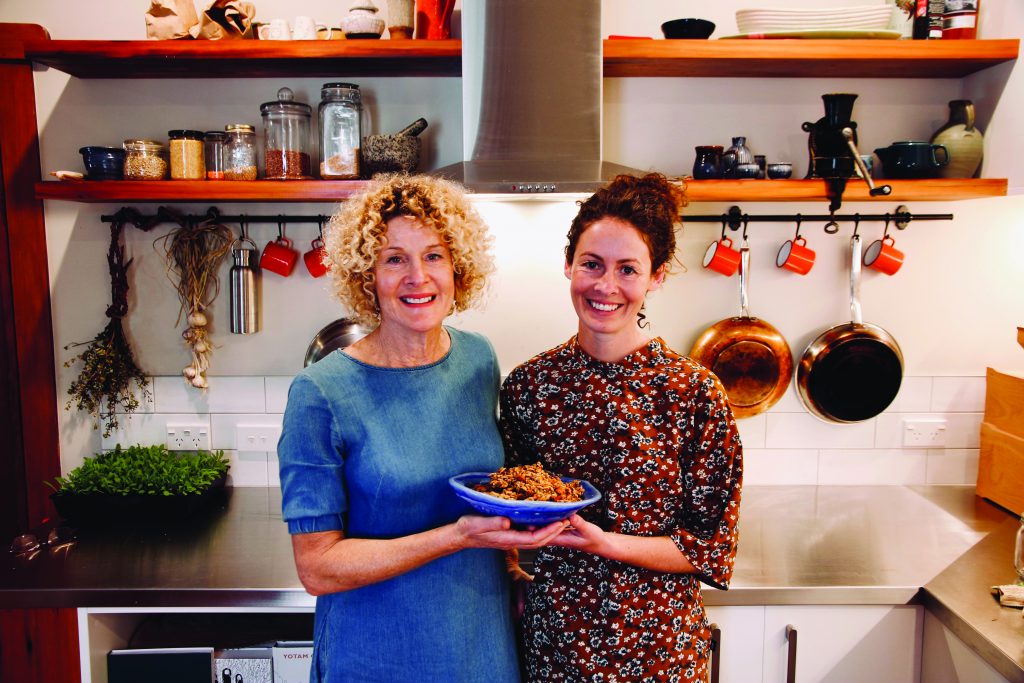Refocusing On Nutrition
Neuroscientist and co-founder of Chia Sisters, Chloe van Dyke talks to M2woman about the importance of refocusing on nutrition while on the go and how our nutritional needs have changed now that we are leaving the house and getting back to normal life.
What is your background?
I have a Bachelor of Science in Neuroscience, a Postgraduate Diploma in Science in Neuroscience, Diploma in Herbal Medicine, as well as an Obama Asia Pacific Leader and an Edmund Hillary Fellow.
Why did you train in neuroscience?
I am interested in how the brain works from the chemistry and biology to the psychology of why we think the way we do.
During lockdown, our eating habits changed. To avoid regular trips to the supermarket we stocked up on the basics such as flour and grains. We baked our own foods and experimented with new recipes. When yeast was hard to come by, we came up with alternatives, sprouted grain breads or flat breads. We made cookies for the kids and enjoyed our own fresh baked muesli straight from the oven. This not only tasted better but reminded us of our parents, or our grandparents. Smell is one of our most innate senses and can bring back memories, and a sense of nostalgia.
Creating our own food from scratch also boosted our confidence and our sense of being a provider, something that many of us had lost confidence in as our usual desk work provided income but did not directly provide any of the basic necessities of life.

We used less packaging; our bread was no longer wrapped in plastic. Our food was healthier because it was fresh and full of nutrients, preservatives or moisture absorbing sachets were not needed.
Now we are coming out of lockdown and back to our busy lives we want to retain this healthy way of living but do not have the time. It is likely we will think more about the foods we choose to buy and compare their quality to what we can make at home, packaging will seem more overwhelming and we will look for better alternatives. Some of us will flick back into convenience buying and others will try and preserve some of the things we learned.
What does neuroscience teach us?
If we consider our minds to be fundamental to who we are then it gives us further insight into what it is to be human.
What medicinal plants do you deem superfoods and why?
I think of superfoods as foods with high nutrition such as chia seeds and hemp protein. These are foods that give us micro-nutrients that we need to be healthy and may be lacking in our diets. Medicinal plants are plants that have a functional benefit and are taken by people that require that benefit.
What medicinal plants should we be eating daily and why?
This depends on your health, if you are looking for something to help you feel calm, increase energy, assist immunity, or help you sleep. Most medicinal plants don’t need to be taken daily, an exception to this may be a digestive herb that helps prepare your body for digestion.
Now we are coming out of lockdown, why (and how can we) refocus on nutrition?
Providing you and your family with essential nutrients is part of making you the best person you can be, along with a balanced lifestyle and exercise. Eating a range of whole foods is the best way to ensure you have a mix of nutrients.
One big change was during lockdown many of us enjoyed breakfast at home without the morning rush and as our busy lives ramp up again, we need to continue focus on the most important meal of the day. We have launched Chia Sisters Mum’s Batch-Made Muesli packed with vitamin B and E, magnesium, zinc, fibre, and iron to help build immunity as we head into winter. It is fresh, straight from the oven, so no more sitting in a supermarket for weeks, no more strange moisture absorbing sachets, no more sugar disguised as syrup, no more middle monkey.
How have our nutritional needs changed now that we are leaving the house and getting back to normal life?
If stress levels are up then an increase in foods rich in magnesium can help. To help digestion, ensure that you have fibre in your diet. In times of stress, what medicinal plants/nutritional changes can we make to support anxiety and general immune health.
For stress, foods rich in magnesium are helpful and calming teas can be used such as chamomile or lemon balm, or valerian (most of the ones at the supermarket don’t work).
For immunity, vitamin C, zinc, and iron are important, but you need to be careful not to take too much of the latter two. Echinacea is good for the immune system; the root is more active than the flower which is sometimes used in cheaper versions.

